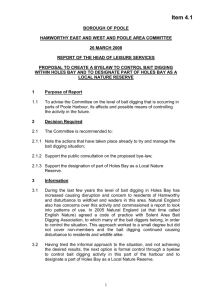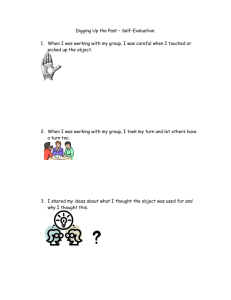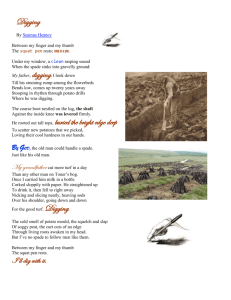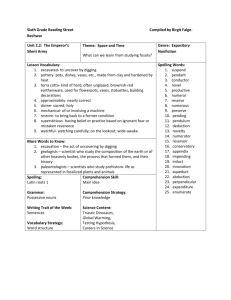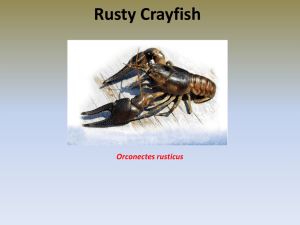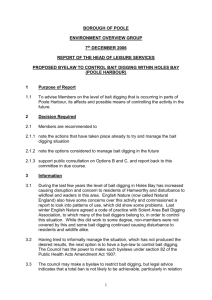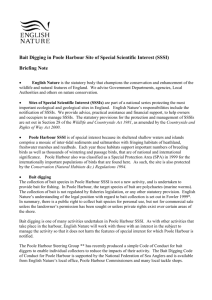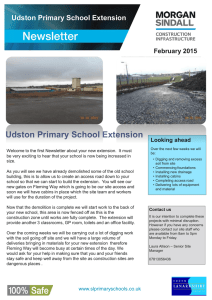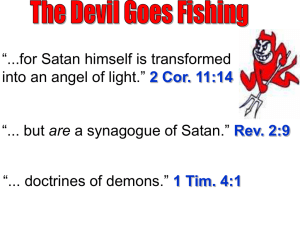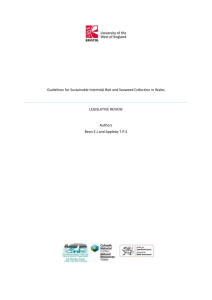proposed byelaw to control bait digging within holes bay
advertisement
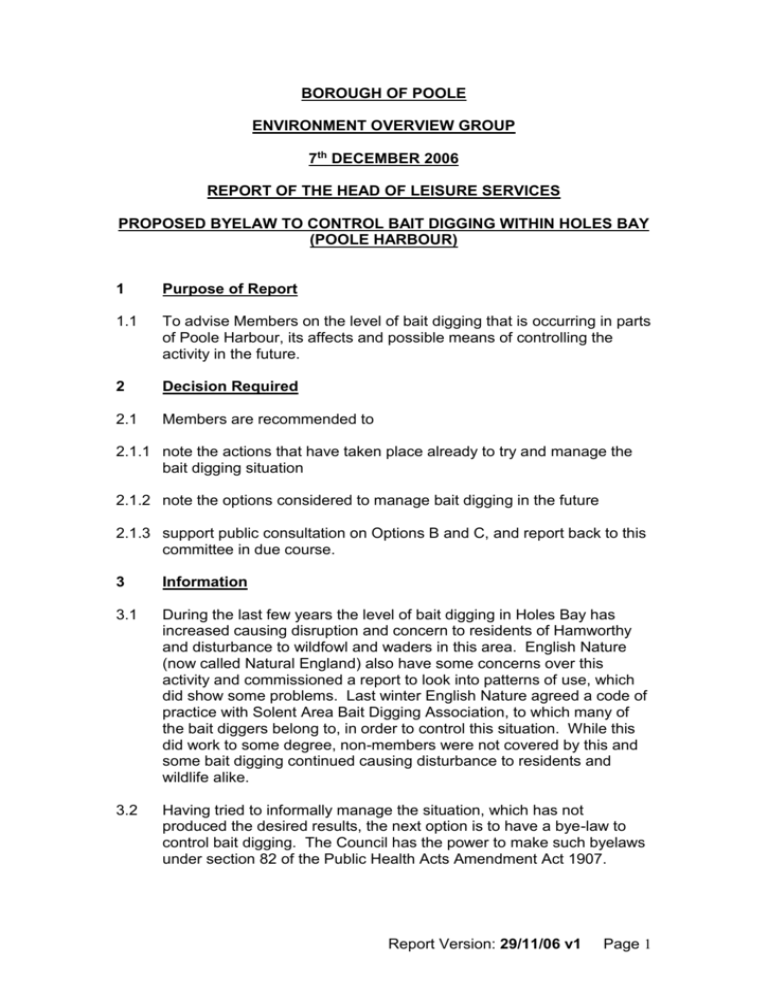
BOROUGH OF POOLE ENVIRONMENT OVERVIEW GROUP 7th DECEMBER 2006 REPORT OF THE HEAD OF LEISURE SERVICES PROPOSED BYELAW TO CONTROL BAIT DIGGING WITHIN HOLES BAY (POOLE HARBOUR) 1 Purpose of Report 1.1 To advise Members on the level of bait digging that is occurring in parts of Poole Harbour, its affects and possible means of controlling the activity in the future. 2 Decision Required 2.1 Members are recommended to 2.1.1 note the actions that have taken place already to try and manage the bait digging situation 2.1.2 note the options considered to manage bait digging in the future 2.1.3 support public consultation on Options B and C, and report back to this committee in due course. 3 Information 3.1 During the last few years the level of bait digging in Holes Bay has increased causing disruption and concern to residents of Hamworthy and disturbance to wildfowl and waders in this area. English Nature (now called Natural England) also have some concerns over this activity and commissioned a report to look into patterns of use, which did show some problems. Last winter English Nature agreed a code of practice with Solent Area Bait Digging Association, to which many of the bait diggers belong to, in order to control this situation. While this did work to some degree, non-members were not covered by this and some bait digging continued causing disturbance to residents and wildlife alike. 3.2 Having tried to informally manage the situation, which has not produced the desired results, the next option is to have a bye-law to control bait digging. The Council has the power to make such byelaws under section 82 of the Public Health Acts Amendment Act 1907. Report Version: 29/11/06 v1 Page 1 3.3 The council may make a byelaw to restrict bait digging, but legal advice indicates that a total ban is not likely to be achievable, particularly in relation to bait digging for personal use. Furthermore, the distinction between personal and commercial digging is perhaps easier to identify on paper than on the ground, with both groups often using unmarked vehicles and operating after dark. This suggests that a single approach to all is the most practical way forward. 3.4 Within Holes Bay the majority of the inter-tidal mud is in private ownership, the Council can make a byelaw over privately owned land if the owner is in agreement. Most is in the ownership of Canford Estates, plus their land holding comprises some of the main areas used for bait digging. Their views have already been informally sought and they are agreeable in principle to a byelaw covering their ownership. Of the other owners we believe that some may be amenable to having a byelaw on their land. 4 Options 4.1 The options considered for a byelaw are: A: No bait digging in all parts of the Harbour under jurisdiction of the Borough of Poole, at all times – current legal advice rules this out as bait digging is considered to be ancillary to the common law ‘right to fish’. Consequently we have an opportunity to regulate rather than prohibit. B: No bait digging in Holes Bay at all times - this is possible as other sites are available in the harbour, although Natural England may have concerns as this might have the effect of displacing the activity to more sensitive areas of the harbour. C: No bait digging in Holes Bay north of the railway line at all times, and no bait digging during January and February south of the railway line within Holes Bay -. This option reflects the fact that some parts of Holes Bay are more sensitive than others, and a less restrictive approach south of the railway may ensure the most sensitive areas to the north are protected. The proposal for a ban below the railway line during specific months is based on the most sensitive times of the year for over-wintering bird populations. 4.2 In order to take forward an option that is deliverable, and one that is based on legal advice and informal consultation with Natural England, the Government’s advisor on nature conservation matters, it is proposed to consult only on Options B and C. The results of the consultation would be reported back to this committee prior to a byelaw being applied for. Report Version: 29/11/06 v1 Page 2 4.3 The public consultation will include any member of the public that may have an interest, but also will have to include bait diggers, Natural England, and Poole Harbour Commissioners. 5 Conclusion 5.1 It is recognised that local residents are concerned over the level and frequency of bait digging in Holes Bay, and the effect that this may have on bird populations. It is considered however that any solution will need to rely on evidence and legal advice, and support from Natural England would be desirable in order to increase the likelihood of success. 5.2 A byelaw would appear to be the only viable solution to try and manage this situation, in the short term. It is considered that Options B or C represent the most deliverable means of addressing concerns over bait digging in the Holes bay at this time. 5.3 In the longer term, the Poole Harbour Commissioners Aquatic Management Plan for Poole Harbour may address this situation and identify a solution, as it will contain zoned areas of the Harbour where certain activities will not be allowed. CLIVE SMITH HEAD OF LEISURE SERVICES Contact Officers: Jez Martin, Nature Conservation Officer (01202) 261338 Matti Raudsepp, Open Spaces Manager (01202) 261377 Background Papers: None Report Version: 29/11/06 v1 Page 3
